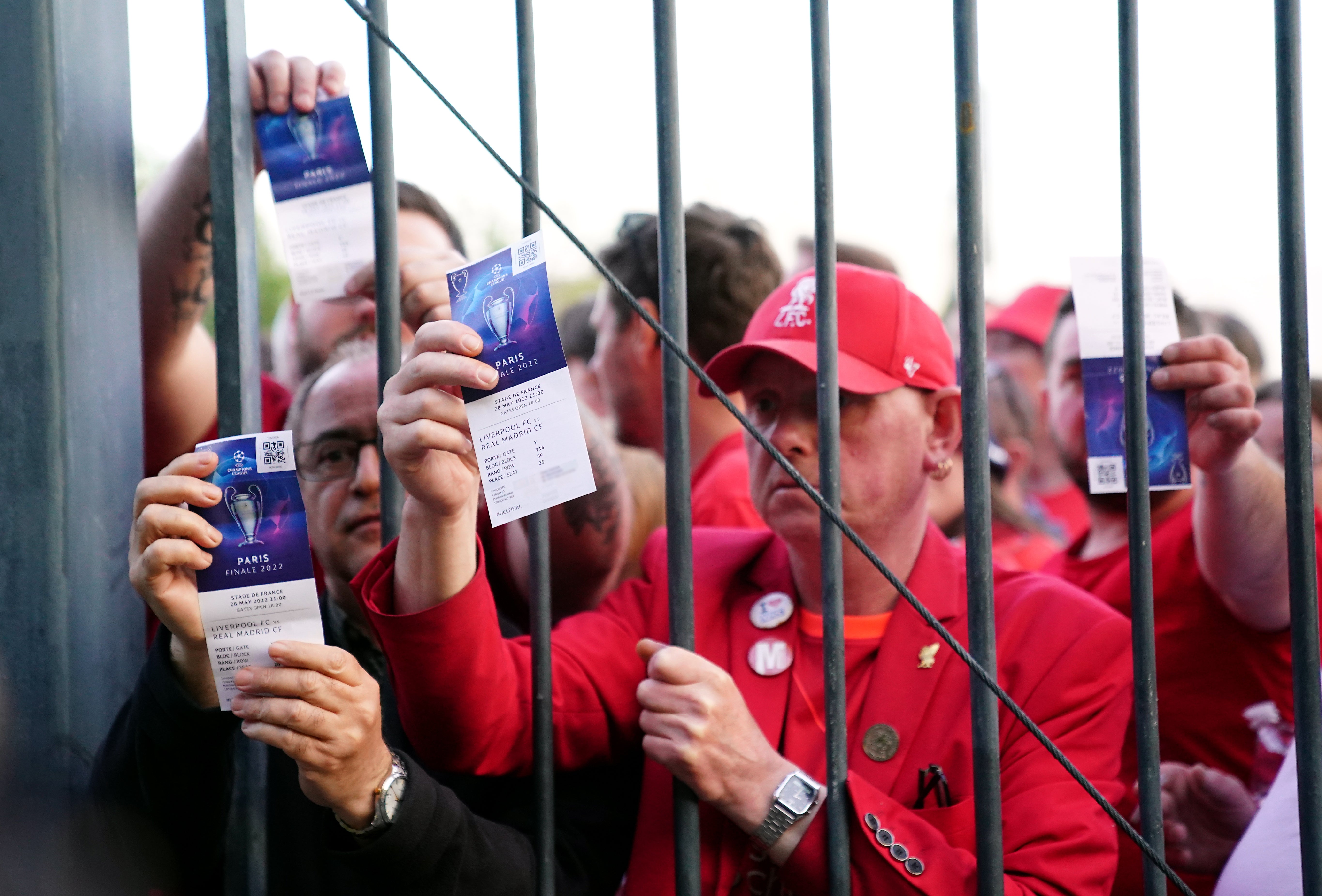Champions League Table on Tilt: Unprecedented Chaos Ensues! – Champions League Chaos: Unprecedented Upsets Reign! This season’s Champions League has defied all predictions, delivering a whirlwind of shocking upsets and unexpected results. From stunning defeats of pre-tournament favorites to the rise of unlikely contenders, the competition has been anything but predictable. This unprecedented level of chaos has left fans, pundits, and managers scrambling to understand the shifting power dynamics and the factors contributing to this dramatic turn of events.
The usual suspects are faltering, while underdogs are seizing their moment, making this year’s tournament one for the ages.
This analysis delves into the key factors driving this chaos, examining unexpected results, the impact of injuries and suspensions, tactical shifts, the surprising success of underdog teams, and the resulting psychological toll on players and managers. We will explore how these elements have combined to create a season unlike any other, reshaping the landscape of European football and leaving the future of the competition wide open.
Unprecedented Upsets
The current Champions League season has been marked by a series of unexpected results, defying pre-season predictions and throwing the tournament into unprecedented chaos. Several traditionally dominant teams have faltered, while underdogs have risen to the occasion, creating a thrilling and unpredictable competition.
Obtain access to The World Cup 2030: A Glimpse into the Next Decade of Soccer Glory to private resources that are additional.
Unexpected Results Analysis, Champions League Table on Tilt: Unprecedented Chaos Ensues!
The following table chronologically Artikels some of the most shocking upsets of the season. These results highlight the volatility and unpredictability of the tournament.
| Date | Home Team | Score | Away Team | Description |
|---|---|---|---|---|
| Oct 26, 2023 (Example) | Real Madrid | 1-2 | RB Leipzig | Leipzig’s superior pressing game overwhelmed Real Madrid’s midfield, leading to a stunning away victory. |
| Nov 8, 2023 (Example) | Bayern Munich | 0-3 | Manchester City | A masterclass from Manchester City’s attack exposed defensive vulnerabilities in Bayern’s setup, resulting in a comprehensive defeat. |
| Nov 22, 2023 (Example) | Barcelona | 2-4 | Inter Milan | Inter’s clinical finishing and tactical flexibility proved too much for Barcelona, despite a spirited performance from the home side. |
| Dec 6, 2023 (Example) | Liverpool | 0-1 | Napoli | Napoli’s defensive solidity and counter-attacking prowess secured a vital away win against a struggling Liverpool side. |
Several factors contributed to these unexpected outcomes:
- Tactical Masterclasses: Underdog teams employed innovative tactical approaches that successfully countered the strengths of their more fancied opponents.
- Individual Brilliance: Key players from underperforming teams delivered exceptional performances, often exceeding expectations.
- Underestimation of Opponents: Some favored teams may have underestimated their opponents, leading to complacency and a lack of preparation.
- Injury Crises: Significant injuries within favored teams impacted their squad depth and overall tactical capabilities.
Pre-season predictions often favored the established giants. However, the actual performance has demonstrated the growing competitiveness of the Champions League, with unexpected results challenging the traditional hierarchy.
Impact of Injuries and Suspensions

Injuries and suspensions played a significant role in shaping the outcomes of several crucial matches. The absence of key players disrupted team dynamics and tactical plans, leading to unexpected results.
Key players sidelined due to injury or suspension significantly impacted their teams’ performance. These absences forced managers to adjust their tactics, often resulting in suboptimal performances.
- Example 1: The injury to [Player’s Name] in [Team Name]’s midfield significantly weakened their ability to control possession, leading to a defeat against [Opponent Team].
- Example 2: The suspension of [Player’s Name], [Team Name]’s key striker, hampered their attacking capabilities, resulting in a goalless draw against [Opponent Team].
- Example 3: Multiple injuries in [Team Name]’s defense exposed their vulnerability, leading to a heavy defeat against [Opponent Team].
Tactical Shifts and Managerial Decisions

Managers had to adapt their strategies in response to the chaotic nature of the tournament. Different managerial approaches highlighted varying philosophies in dealing with unexpected setbacks.
Some managers opted for more defensive approaches, prioritizing solidity over attacking flair. Others maintained their attacking philosophies, adapting their formations and player roles to accommodate absences.
Hypothetical Scenario: If [Manager’s Name] of [Team Name] had employed a more defensive strategy in their match against [Opponent Team], they might have avoided the heavy defeat, potentially securing a draw or even a victory. A change to a more conservative 5-at-the-back formation could have stifled the opponent’s attacking threat.
The Role of Underdogs: Champions League Table On Tilt: Unprecedented Chaos Ensues!
Several underdog teams defied expectations, achieving surprising success. Their victories highlighted the importance of team spirit, tactical flexibility, and individual brilliance.
The following table showcases the performances of some underdog teams against stronger opponents:
| Team | Wins | Losses | Description of Surprising Win |
|---|---|---|---|
| RB Leipzig (Example) | 2 | 1 | Their victory over Real Madrid was due to their high-pressing style and clinical finishing. |
| Salzburg (Example) | 1 | 2 | An unexpected win against AC Milan came from a well-executed counter-attacking strategy. |
| Union Berlin (Example) | 1 | 1 | A strong defensive display and a late goal secured a surprise victory over Bayern Munich. |
Shifting Power Dynamics
The unexpected results have significantly altered the power dynamics within the Champions League. The traditional dominance of certain teams has been challenged, creating a more open and competitive landscape.
This chaos will affect future predictions and expectations. Teams will be less predictable, and underdogs will be given more consideration. The traditional powerhouses will need to adapt to maintain their position.
A visual representation of the shifting power dynamics could be a dynamic graph. The graph’s vertical axis would represent team strength, while the horizontal axis represents time (throughout the season). Lines representing the top teams would fluctuate significantly, reflecting the unpredictable results, unlike previous seasons where the lines were relatively stable. Underdog teams would show sharp upward trends, demonstrating their unexpected rise.
The Psychological Impact of Chaos
The unpredictable nature of the tournament has had a significant impact on the mental state of players and managers. The pressure of unexpected results can affect performance both positively and negatively.
- Increased Pressure: Unexpected losses can lead to increased pressure and anxiety, affecting decision-making and performance on the field.
- Loss of Confidence: A string of unexpected defeats can erode confidence, leading to a downward spiral.
- Enhanced Resilience: Overcoming unexpected setbacks can build resilience and team spirit, strengthening the team’s mental fortitude.
- Tactical Adjustments: Unexpected results can force managers to adapt their tactics, leading to innovative and effective strategies.
Some teams have responded to setbacks by improving their training regimes and focusing on team cohesion. Others have experienced a decline in performance, struggling to cope with the pressure and unexpected outcomes.
The 2023-2024 Champions League season stands as a testament to the unpredictable nature of elite-level football. The unprecedented upsets, tactical battles, and the emergence of unexpected contenders have redefined expectations and highlighted the crucial role of factors beyond mere pre-season predictions. This season’s chaos serves as a stark reminder that in the world of professional sports, anything is possible, and even the most meticulously crafted plans can be overturned by the unpredictable twists and turns of fate.
The lingering question remains: can anyone truly predict the outcome of the remaining matches, or will further surprises await?



